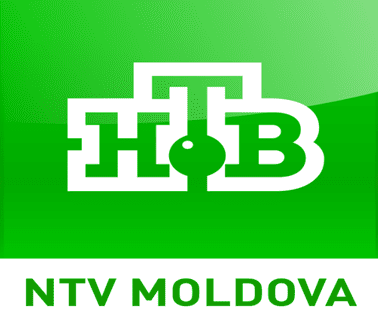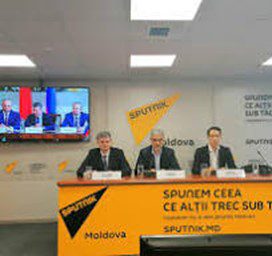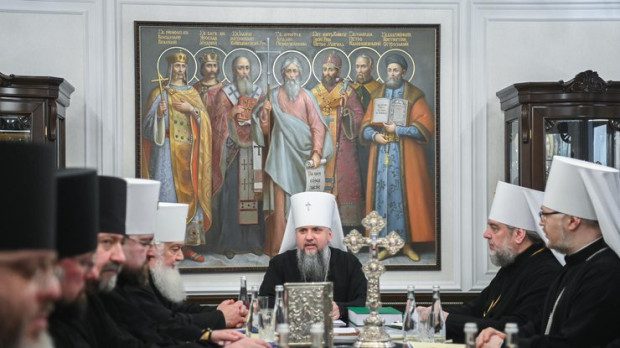At the end of February 2022, after Russia’s full-scale military invasion of Ukraine, the Moldovan parliament introduced a state of emergency for a period of 60 days. During this period, broadcasting television programs from Russia was limited in the country. In addition, access to the news websites Sputnik Moldova, Eurasia Daily (https://eadaily.com/ru/) and a number of other resources was blocked. The Prosecutor General’s Office of the country announced the launch of an investigation against a number of persons “on suspicion of biased coverage of events happening in Ukraine”.
By Dr Evgeniya Gidulianova with Willy Fautré (See Part I HERE)
Timeline of the Moldovan sanctions
On 2 June 2022, the Moldovan parliament adopted a package of legislative amendments related to the country’s information security. The Code on Audiovisual Media Services was amended to prohibit the retransmission of news, television and radio programs with informational and analytical, military and political content, as well as military films from countries that have not ratified the European Convention on Transfrontier Television, which was the case of Russia.
On 22 June 2022, the Law on Amendments to the Code on Audiovisual Media Services entered into force in Moldova.
The law introduced the concept of disinformation and provided strict measures in case of breach, such as the deprivation of the broadcasting/airing license for a period of up to seven years.
On 16 December 2022, the licenses of six channels linked to Ilan Shor were suspended for repeatedly violating the law. Among them “Primul in Moldova”, “RTR-Moldova”, “Accent-TV”, “NTV-Moldova”, “TV-6”, “Orhei-TV”.

The president of the Broadcasting Council, Liliana Vițu, said to Eurasia Daily that this decision of the Commission for Emergency Situations was based on the monitoring reports of the Council members and independent media experts. These channels were sanctioned for repeatedly broadcasting biased information about national events and propaganda about the war of aggression against Ukraine: NTV Moldova (22 sanctions), Primul in Moldova (17 sanctions), RTR Moldova (14 sanctions), Orhei TV (13 sanctions), TV6 (13 sanctions), Accent TV (5 sanctions).
Moldovan Prime Minister Natalia Gavrilița stated on her Facebook page: “These media outlets have seriously and repeatedly violated the Code on Audiovisual Services, biased and manipulative reporting on the events in Moldova, as well as those related to the war in Ukraine.“
Minister of Justice Sergiu Litvinenco stated on Facebook, that the issue of suspending the license of the six channels needs to be very clear: “Freedom of speech is one thing, but propaganda is another. Now it is not just propaganda, as it was before, when the European Court of Human Rights also ruled in favor of the authorities. This is blatant propaganda to justify a war of aggression, spreading aggressive language, inciting ethnic hatred, and endangering state security. The main function of the state is to protect the security of citizens and the constitutional order.“
The role of Moscow and wanted pro-Russian oligarch Ilhan Shor
MP Radu Marian (Party of Action and Solidarity) said that the six TV channels sanctioned by the Commission for Emergency Situations are linked to the Moldovan pro-Russian fugitive oligarch Ilan Shor accused in Moldova of embezzling nearly €1 billion from Moldovan banks. Shor is funding a pro-Russian populist party in Moldova called ȘOR which has an anti-EU membership agenda.

On his Facebook page, MP Radu Marian stated “it is at least ridiculous that those who are now shouting about the violation of ‘freedom of speech’ do not have a problem with the murder of Russian opposition journalists, nor with the invasion of an independent country, nor with the arrest of protesters across Russia who simply go out into the streets with a white sheet of paper. Our pro-Kremlin propagandists say nothing about it, and often justify such barbaric actions. Keeping silent about the terrible events in Ukraine is not ‘freedom of speech.’ This is part of the disinformation.”
Valeriu Pașa, the head of the Watchdog.MD Community, wrote on his Facebook page: “Do these TV channels pose a threat to the security of the Republic of Moldova? Of course! Why? Because they are controlled directly or through intermediaries (such as Shor or nominal RTR holders) by the Russian Federation. Moscow has been subsidizing and financing these TV channels for years… offering at a ridiculous price the right to rebroadcast expensive contents financed from the Russian state budget and from advertising budgets pumped into the Russian press by state-owned companies such as Gazprom and many others. This is not a new story, it has been going on since 1993.”
The heads of the TV channels “Primul in Moldova”, “RTR-Moldova”, “Accent-TV”, “NTV-Moldova”, “TV-6”, “Orhei-TV” appealed against the actions of the authorities in court.

On 13 September 2023, the Moldovan authorities deported Vitaly Denisov, the head of Sputnik Moldova under EU and Moldovan sanctions. He was also issued a 10-year ban on entry into the country. The General Inspectorate for Migration of the Republic reported that Denisov was recognized as an undesirable person in Moldova because of “activities that threaten national security.” Later, the Moldovan service of Radio Svoboda found out that Denisov has a very loose relationship with journalism and is presumably a career officer of the 72nd Special Service Center (military unit 54777). This unit is known to be engaged in information injections and disinformation to foreign audiences.
Moscow threatens
On 3 October 2023, Moldova’s ambassador to Russia, Lilian Darii, was summoned to the Russian Ministry of Foreign Affairs. The Minister accused Moldova of “politically motivated persecution of Russian-language media outlets,” citing the expulsion of the head of the Sputnik Moldova news agency, Vitaly Denisov, on the grounds of being associated with the military intelligence of the Russian Federation.
The Russian Federation closed entry for a number of persons directly related to the restriction of freedom of speech and the rights of Russian journalists in Moldova, as well as the incitement of anti-Russian sentiments.
On 24 October 2023, Russian Press Agency TASS reported that the Information and Security Service of Moldova blocked access to more than 20 Internet resources of Russian media outlets. A number of them are on the list of EU sanctions.
On 30 October 2023, the director of the Information and Security Service of Moldova, Alexandru Musteața, signed an Order blocking access for users in Moldova to 31 sites.

On the same day, the Commission for Emergency Situations decided to suspend the licenses of 6 TV channels “promoting foreign interests”: the TV channels Orizont TV, ITV, Prime, Publika TV, Canal 2 and Canal 3.
Prime Minister of Moldova Dorin Recean commented on his Facebook page “Moldova is subjected to hybrid attacks by the Russian Federation on a daily basis. In recent weeks, the intensity of such threats has increased. Russia, through organized crime groups, wants to influence local elections and undermine the democratic process. (…). These TV channels are subordinate to the criminal groups of Plahotniuc and Shor, who have joined their efforts aimed at destabilizing the situation in Moldova.”
In retaliation, Moscow announced to the Moldovan ambassador a ban on entry into the Russian Federation “for a number of officials of the Republic of Moldova”.
In conclusion, it is worth mentioning that in its World Press Index including 180 countries, Reporters Without Borders ranked Moldova in the following positions in the last three years: 89 in 2021, 40 in 2022 and 28 in 2023. In addition, Amnesty International, Human Rights Watch and the Committee for the Protection of Journalists considered in their last reports that freedom of the media in Moldova is not a relevant issue and does not deserve to be specifically covered.
About Evgeniya Gidulianova

Evgeniya Gidulianova holds a Ph.D. in Law and was Associate Professor at the Department of Criminal Procedure of Odesa Law Academy between 2006 and 2021.
She is now a lawyer in private practice and a consultant for the Brussels-based NGO Human Rights Without Frontiers.
(*) Ilan Shor is an Israel-born Moldovan oligarch and politician. In 2014, Shor “masterminded” a scam that saw US$1 billion disappear from Moldovan banks, resulting in a total loss equivalent to 12% of Moldova’s GDP and the arrest of former Prime Minister Vlad Filat. In June 2017, he was sentenced to 7.5 years of prison in absentia for fraud and money laundering and on 14 April 2023 his sentence was increased to 15 years. All of Shor’s Moldovan assets were also frozen. After spending time under house arrest he fled to Israel in 2019, where he currently lives.
On 26 October 2022, the United States sanctioned him due to his working with “corrupt oligarchs and Moscow-based entities to create political unrest in Moldova”.The UK and the EU also sanctioned Shor. His pro-Russian party, the ȘOR Party, was banned by the Constitutional Court of Moldova on 19 June 2023 after months of protests organized by his party. According to the court, these protests were designed to destabilize Moldova and foment a coup in order to install a pro-Russian government.





